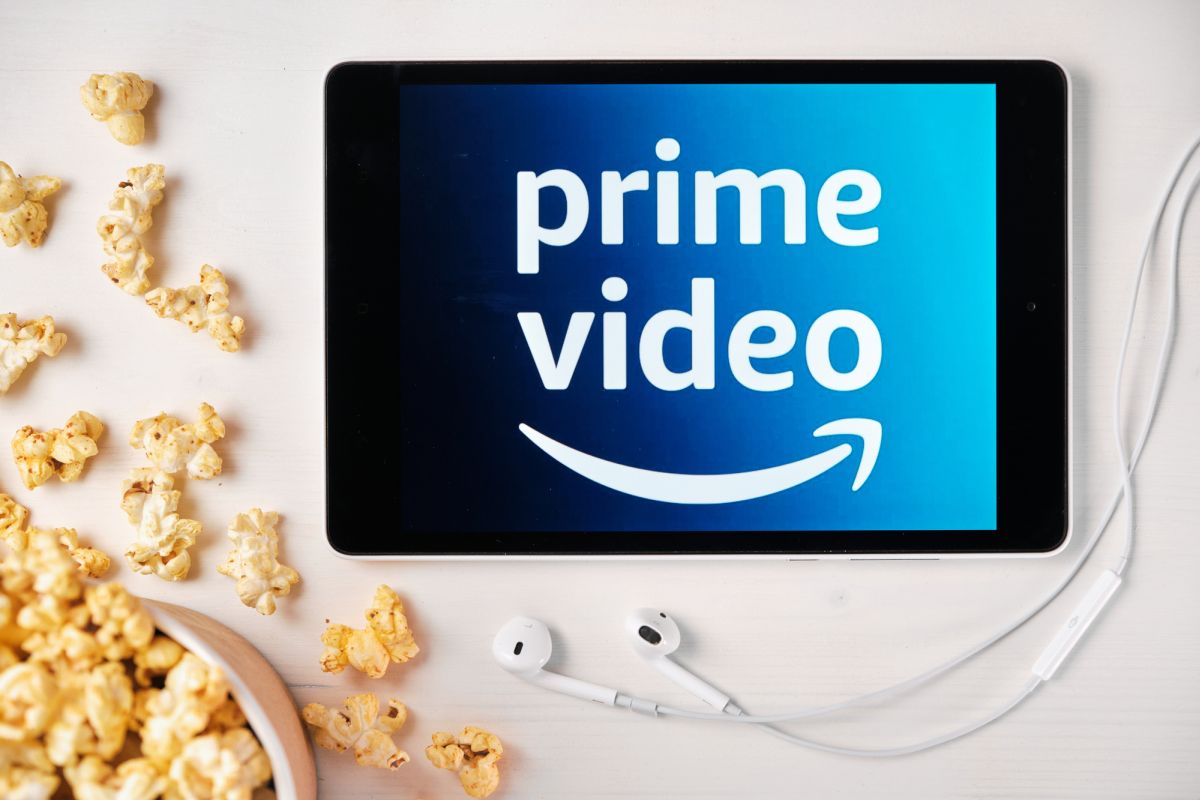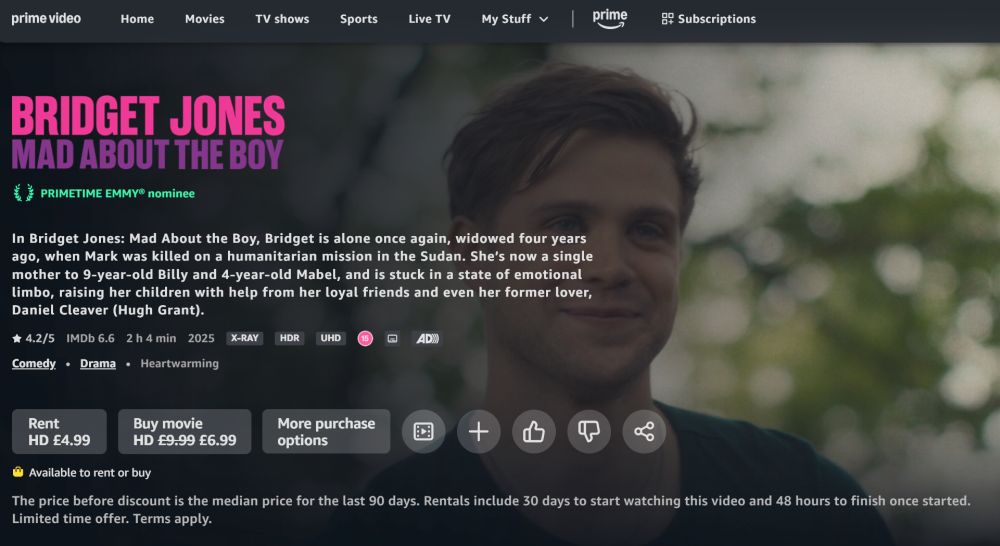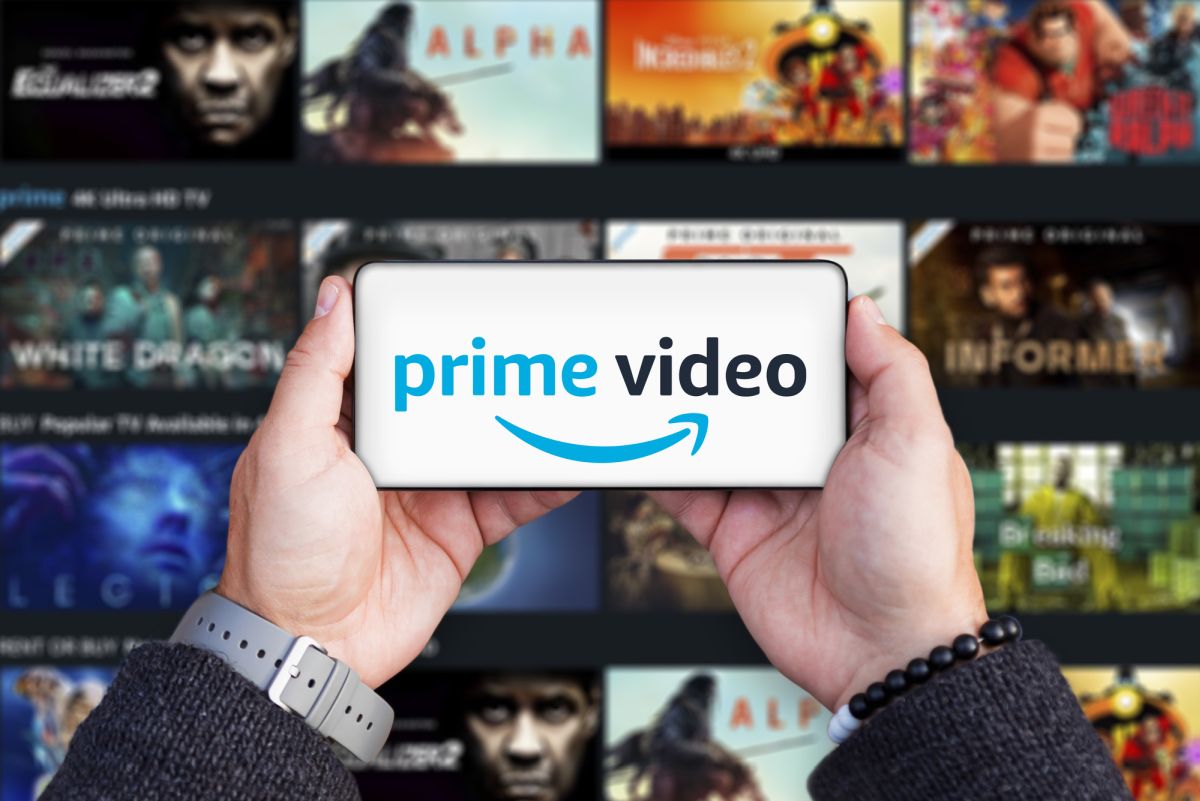Amazon is facing fresh legal scrutiny over something that affects millions of streaming fans on both sides of the Atlantic: when you click “buy” on a digital film, do you actually own it?
A new class action lawsuit filed in Washington federal court suggests the answer is a resounding no – and whilst the case is playing out in US courts, the implications could potentially reach the UK.
The case, reported by The Hollywood Reporter, alleges that Amazon is running a “bait and switch” operation. Whilst the company prominently displays “buy” buttons throughout Prime Video, buried in the fine print is the reality: you’re only getting a licence to watch that film, and Amazon can revoke it at any time.
Not Amazon’s First Rodeo
This isn’t new territory for the tech giant. Back in 2020, Amazon faced similar allegations from Amanda Caudel, who filed a lawsuit over the company’s practice of potentially deleting purchased content.

Amazon argued that consumers get “a limited license for ‘on-demand viewing over an indefinite period of time'” and claimed their terms of use made this clear all along.
The company even noted that Caudel had bought 13 more titles on Prime Video after filing her complaint, essentially arguing: if you’re still buying, what’s the harm?
The New Lawsuit: California’s Stricter Rules Change the Game
The fresh legal challenge centres on whether Amazon’s language violates recently strengthened California consumer protection laws.
The complaint argues that Amazon “does not meet the standards set by the statute for a clear and conspicuous notice that the thing they are purchasing is a revocable license to access the digital good.”
What makes this case potentially more damaging for Amazon is the timing. Earlier this year, California enacted legislation specifically barring companies from advertising transactions as “purchases” unless they offer unrestricted ownership.
Under the new rules, sellers must obtain clear acknowledgement from buyers that they’re actually purchasing a limited licence that can be revoked.
The lawsuit claims Amazon buries crucial licensing information “at the very bottom of the screen, in font that is considerably smaller than the other text on the screen” – hardly the “clear and conspicuous notice” California now requires.

Meanwhile, the prominent “buy” buttons throughout the purchase process allegedly mislead consumers into thinking they’re getting permanent ownership.
What Amazon’s Terms Actually Say
When you purchase a film on Prime Video, the platform states “By ordering or viewing, you agree to our Terms.” Those terms are quite explicit about what you’re actually getting:
“Purchased Digital Content will generally continue to be available to you for download or streaming from the Service, as applicable, but may become unavailable due to potential content provider licensing restrictions or for other reasons, and Amazon will not be liable to you if Purchased Digital Content becomes unavailable for further download or streaming.”
That word “generally” is doing a lot of heavy lifting there.
It’s Amazon’s get-out clause for when licensing deals expire and your “purchased” content vanishes from your library – whether you’re in Birmingham or Boston.
The Broader Digital Ownership Problem
This legal battle highlights a major shift that’s happened as we’ve moved away from physical media.
When you bought a DVD from HMV or Tesco, you owned it – full stop. You could lend it to friends, sell it, or watch it decades later. But in our streaming-first world, ownership has become a murky concept wrapped in licensing agreements and terms of service.

The issue isn’t limited to films either. Amazon has a history of digital content disappearing. Remember when they remotely deleted George Orwell’s “1984” from customers’ Kindle devices in 2009?
This affected UK customers too, and the irony wasn’t lost on anyone – the company literally made a book about totalitarian surveillance vanish from people’s personal libraries. Refunds were provided, but the precedent was set.
Of course, Amazon isn’t alone in this. Buyers face the same licensing limitations whether they purchase from Sky’s Store, Rakuten, or any other digital retailer.
Why Physical Media Still Matters
This is partly why physical media has been experiencing something of a renaissance. DVDs and Blu-rays might seem old-fashioned, but they offer something streaming can’t: genuine ownership.
When you buy a physical disc from CEX or Amazon, you’re not subject to licensing agreements expiring or platforms deciding to remove content.
Similarly, recording programmes on a Freeview recorder gives you permanent access to that content. It’s your copy, stored on your device, immune to the complex web of rights deals that govern streaming platforms.
That episode of EastEnders you recorded last week? It’s yours to keep, regardless of what happens to BBC iPlayer’s licensing deals.
Granted, films and TV episodes you directly buy are less prone to vanishing than subscription content that regularly jumps between streaming services – but the risk is certainly there.
Of course, most of us have happily made the trade-off. Digital purchases are convenient – no physical storage needed, instant access from multiple devices, and often competitive pricing.
But this latest lawsuit forces us to confront what we’re actually getting for our money.
What This Means for UK Consumers
Whilst this lawsuit is playing out in US courts, UK consumers face similar issues.
Amazon’s terms are essentially the same worldwide, meaning British users are subject to the same licensing limitations. However, UK consumer law does provide some additional protections.
Under the Consumer Rights Act 2015, UK consumers have specific statutory rights when it comes to digital content. The law treats digital media as a distinct category and requires it to be “of satisfactory quality,” “fit for purpose,” and “as described.”
If your purchased content becomes unavailable due to licensing issues, you’re entitled to a refund under UK law.
More importantly, the Act includes an implied term that traders must have the “right to supply” digital content to consumers. If Amazon loses the rights and cannot provide access to something you’ve bought, they’re legally obligated to provide a full refund – not just store credit.
UK consumers also have up to six years to pursue claims for digital content that doesn’t conform to contract terms, with the burden of proof favouring the consumer for the first six months.

If you lose access to purchased content, you can escalate complaints through Citizens Advice or your local trading standards office.
The Digital Markets, Competition and Consumers Act 2024, which came into force earlier this year, has strengthened these protections further, giving the Competition and Markets Authority enhanced powers to tackle misleading practices.
However, there haven’t been any high-profile UK court cases specifically testing these rights when digital movie purchases are revoked or expire.
The Streaming Reality Check
This legal battle serves as a useful reminder about the realities of our streaming-dominated world. When platforms say you can “buy” content, they’re using the word in a very specific, limited sense. You’re buying access, not ownership.
For most casual viewing, this distinction might not matter. But if you’re building a digital collection of favourite films or shows, it’s worth understanding that your library exists entirely at the pleasure of licensing agreements between corporations.
That director’s cut of Blade Runner you “bought” for £4.99? It could vanish tomorrow if the licensing deal changes.
We’ve contacted Amazon for comment and will update this piece if they respond.
For more TV and streaming news, Subscribe to our free newsletter.

This is why I am still using physical media and VHS
TV recorders can digital blocked and I am interested in space flight and record items from the news . The 4k EE box is totaly useless as it automatically deletes news content recorded . While I have 45 year old vhs tapes which I can stil watch .
I’m currently trying to decide on the right 4K BD drive to start buying disks and popping them on my media server. Terrified of losing access to all my purchased films. The pain is then storing the original disks but, such is life!
This is why I started buying DVDs again not only to watch them that way but to rip them to my home media server so I can stream them at the same quality that is on the disc.
I was always suspicious of buying something without having something physical to hold onto. It seems I was right. I’m glad I never bought anything that way!